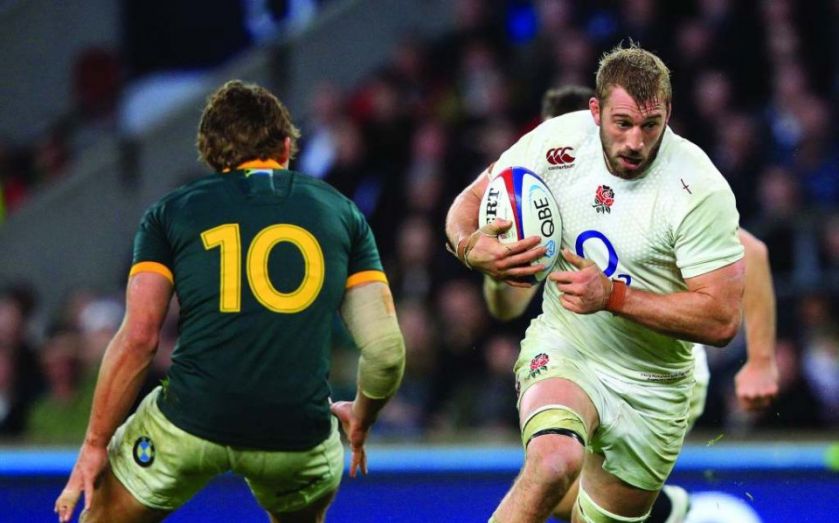QBE’s David Hall on how insurers are the unsung heroes of major sporting events: “I like to think we are the glue that allows the World Cup to operate”

For A few short weeks next month, England's rugby team will find itself at the centre of the sporting universe. The World Cup will provide nailbiting thrills and drama, established stars will shine, new stars will burst into life, and seminal moments will be etched into the sport’s history books. Amid this landscape of excitement, few will mention those beavering behind the scenes to make it all happen.
As with countless other global events, quietly underpinning this massive operation will be the insurance industry. Theirs is not a position of glamour and celebratory headlines; they leave that to the players. Instead, insurers are content to oil the wheels.
“The World Cup is a major worldwide event, and I see insurance as the centrepiece of the jigsaw,” explains David Hall, managing director of the retail arm of business insurance specialists QBE, and a man with 30 years’ industry experience.
“This tournament will put the UK plc on the map. In this country we’re seen as a place that puts on great events, we’re well organised and controlled. Insurance is right in the middle of all the component parts – the coaches, the players, the venues, the broadcasters – and I like to think it’s the glue that allows them all to operate. It protects and shields people from uncertainty. The World Cup would not get off the ground without insurance.”
A lifelong Liverpool FC fan and keen golfer, David Hall is quick to recognise the reciprocal nature of a corporate relationship with sport. Two of his previous employers, Aviva and Zurich, have successful rugby sponsorship histories. QBE has been involved with England Rugby since 2012, as sponsors of the home autumn internationals. The benefits have been profound, he says.
“The partnership pre-dates my time here, but QBE wanted to generate a hugely increased level of growth. As a global business based in Australia, principally this meant building brand, name and profile awareness across the world.
GREAT SHOW
“Our involvement in rugby has allowed us to bring together our business and our clients from two hemispheres. It’s also mobilised our workforce and our client base with the values that we aspire to. Rugby is a team sport that involves a lot of training, a lot of learning, a collegiate responsibility to win, and with an emphasis on the right behaviours and ethics. These are our business values too.”
As readers might have gathered, Hall is one of life’s enthusiasts. He keeps a rugby ball in the corner of his office, and in every direction that you turn, the QBE workspace is littered with billboards of England captain Chris Robshaw.
Although frequently itinerant, his own family life has always included a rugby club.
“I’ve worked in lots of different places all over the country, and overseas too, so I’ve dragged my family around,” he explains.
“I love the social side of rugby. When they were growing up, our children’s involvement at local clubs created our network of friends, wherever we were. It’s one of the reasons I’m so proud of the grassroots QBE coaching programme that we launched in 2012. By the end of this year we will have produced 2,015 qualified rugby coaches for players aged 13 and over.”
QBE’s commitment to rugby would appear to be heartfelt. It is clear that the partnership is producing on the bottom line, and they are in talks about an extension to their current deal with England. Investment in youth legacy programmes is always welcome, but Hall has long since accepted that the credit will go elsewhere.
“We are only seen or heard from when things go wrong. We are never really given praise for putting people back on their feet. It just happens.
“With regards to rugby, the industry insures all the assets, the pitches, the buses and hotels the players use. God forbid it ever happens, but we insure against acts of terrorism, for example.
“We are there when people have a downturn or a disaster. It means the rugby boys can put on a great show, and more often than not, we sit behind making sure that’s exactly what they can achieve."